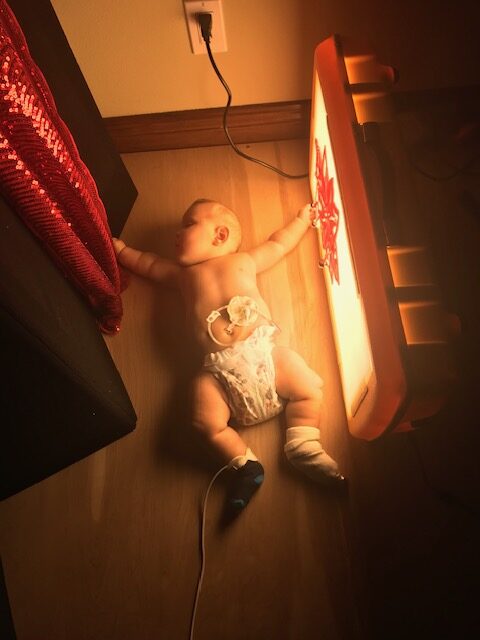Why Vision Services?
Vision is the primary source of information for most babies. According to research, no other sense can initiate exploration, stimulate curiosity, integrate sensory information, as efficiently and fully, as vision. For the baby who is visually impaired or blind the remaining sense of movement, taste, smell, hearing, and touch must function without the integration that is provided through vision. For example, a baby who has normal vision will learn about a squishy ball mostly from her vision. On the other hand, a baby who has a visual impairment will use her hearing and touch to learn about the squishy ball. Babies with visual impairments can learn the same things as babies with normal vision but they may need modifications and adaptations.
A child’s visual impairment can have a negative impact on developing milestones because learning can be more difficult without the clues that are provided through visual experiences. Through vision sessions, parents and caregivers will learn to help their baby develop sensory awareness about their natural environment so the baby can begin to move and explore with a purpose through play activities and daily routines. Each session is designed for learning and practicing hands on opportunities for both the family and the child, a time to offer support and educational resources that are related to the child’s visual impairment, work on routine-based intervention strategies specifically planned to meet the needs for their child. My overall goal is to always be a source of ongoing encouragement.


What you should expect:
VISION SESSIONS
Individualized vision sessions will take place in your home, office based, or in the daycare. Based on the assessment results and the child’s and family’s needs, the frequency of vision sessions will be determined. Weekly or Bi-weekly sessions are highly recommended because as the baby matures his or her vision changes.
VISION SESSIONS MAY ADDRESS:
- Explanations/Resources that describe how the child’s visual impairment can impact his or her learning new skills.
- Writing Goals & Objectives for Facilitating Vision
- Eye Patching-Eye strengthening exercises/activities
- Strategies for using vision during Mealtime/Dressing/Bath Time/Bedtime/Playtime etc.
- Environmental Adaptations-Lighting, high contrast background, eliminating visual clutter, placement of toys and objects, etc.
- Pre-Orientation Mobility Skills (Communication Cues/Echolocation/Trailing Walls)
- Pre-Braille Skills (Environmental Cues/Exploring Textures)
- Collaborating with other team members -OT, PT, SLP, & Ophthalmologist.

